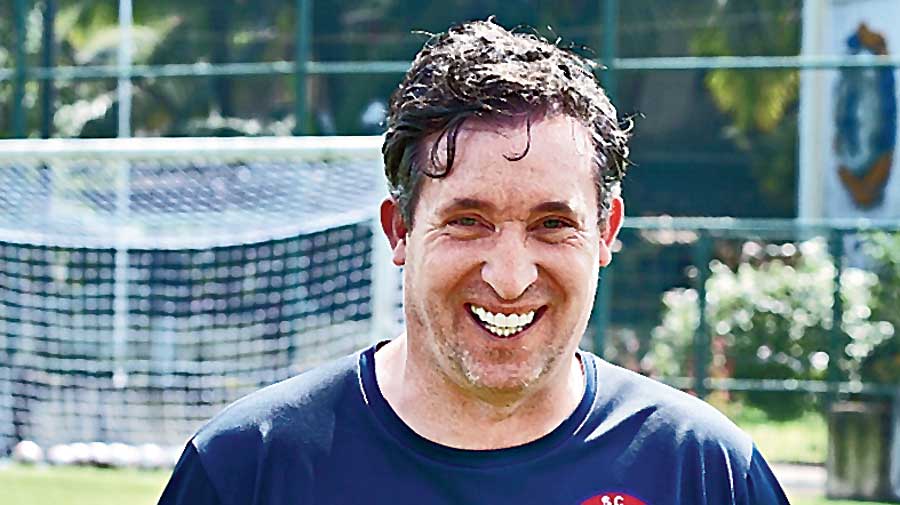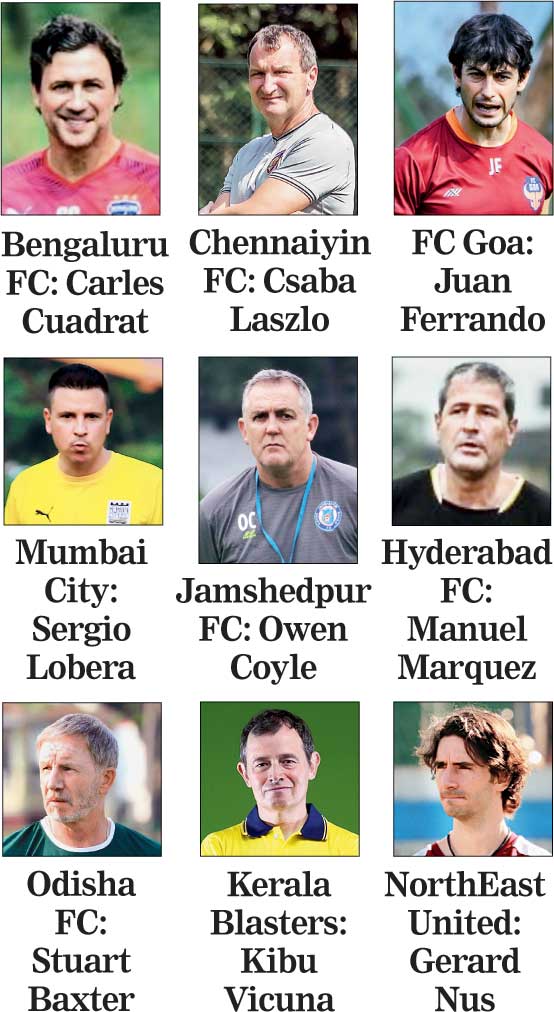One of modern-age Indian football’s lingering debates has again been rekindled ahead of the seventh edition of the Indian Super League that starts from Friday — aren’t Indian coaches good enough?
None of the 11 teams has an Indian as the head coach — the 100-year-old SC East Bengal have hired Robbie Fowler, who has just a year’s experience — though the teams have former India players as assistant coaches.

SC East Bengal: Robbie Fowler Sourced by Correspondent
In I-League, which starts in Calcutta from January 9, as of now only two clubs have Indian coaches. Aizawl FC have Stanly Rozario and Gift Raikhan is in charge of Neroca FC.
In the ISL last season, after FC Goa parted ways with Spaniard Sergio Lobera, former India international Clifford Miranda, who was Lobera’s deputy, was made the interim coach. The team earned a berth in the Asian Champions League. This season though FC Goa got another Spaniard, Juan Ferrando, and Miranda is back as an assistant.
“It’s the mindset of the club owners. They always think foreign coaches are the best. For example, Kerala Blasters hired Kibu Vicuna after he masterminded Mohun Bagan’s I-League triumph. But Khalid Jamil or Sanjoy Sen continue to be assistants despite being I-League-winning coaches. That’s how it is. There is no trust in us,” Aizawl FC’s Rozario told The Telegraph from Bangalore.
At present, India has 16 Pro-Licence and 180 A-Licence coaches. The ISL makes it mandatory for teams to appoint only Pro-licence coaches from any confederation, whereas in I-League, an A-licence is good enough. “It’s no point having a licence when you do not have a job,” former India player and A-licence coach Mehrajuddin Wadoo said.

Sourced by Correspondent
One ISL team assistant coach, who refused to be quoted, was critical of the abilities of some members of the foreign support staff. “Most of the support staff members never played football. The knowledge they have is more theoretical. But the perception is if you are a foreigner then you have to be good. That has to change if Indian football wants to improve,” he said.
Another assistant coach of a popular ISL club said given a chance, he would prefer to be at the helm of a second division side than working under a foreign coach. “I would always prefer that. There you will have the freedom to express yourself. Win or lose, at the end of the day it was your idea. As an assistant, at the best you can float in an idea during a meeting. Whether that would be liked or not is up to the foreign coach,” he said.
Savio Medeira, former India player and All India Football Federation’s head of coach education, agreed that clubs should start showing faith in Indian coaches, but at the same time felt coaches need to learn more.
“We have very good Indian coaches right now but they should learn how to deal with the club management, the players, the non-coaching staff. It’s not an easy job. The AIFF had planned overseas trips for some of the bright coaches but due to Covid-19 that didn’t materialise,” he said.
“We are constantly educating the coaches on various aspects. The coaches also will have to upgrade themselves. If you ask me, if given a chance, they have the quality to become a top coach. But the most important thing is that chance. Just have a look at top Asian countries. Most of the clubs there have men from their own countries in the dug-out,” Dinesh Nair, founding director of Association of Indian Football Coaches, added.
Opportunity is the most important thing for an Indian coach, felt Wadoo. “If we do not get an opportunity how would you know if I am good or bad,” Wadoo questioned.
Take I-League new entrants Sudeva Delhi FC as a reference. They have an all-Indian football team, but the coach, Chencho Dorji, is from Bhutan. “You want me to believe his credentials are better than that of the Indian coaches?” another assistant coach with an ISL side asked.
Sudeva co-owner Anuj Gupta though defended his decision. “I am not saying our coaches are bad. But I wanted to appoint a young yet experienced coach. Here there’s a dearth of young experienced coaches. Also our coaches come for a big price. You have to keep in mind the economics also. It’s sort of a Catch-22 situation right now.”
The Yan Law episode in October was a blot. The Calcutta-born young coach got the boot from Mohammedan Sporting in the middle of the second division I-League on the ground that he was not listening to the club management.
“It was a bad experience for us. That’s the reason we went for a relatively unknown Spaniard Jose Hevia. We had spoken to some Indian caches, but they wanted players of their choice. I was not in favour of disturbing my core team. Hevia doesn’t come with any baggage,” club football secretary Dipendu Biswas said.
There is an idea that Indian coaches do not earn respect from the players. “Do you mean to say Sukhwinder Singh, Armando Colaco, Subhas Bhowmick or Subrata Bhattacharya did not get the respect? It’s a prejudice that players listen to only foreign coaches. Right now it’s the Spanish wave in Indian football. Earlier, it used to be the Nigeria fixation,” one former player said.











